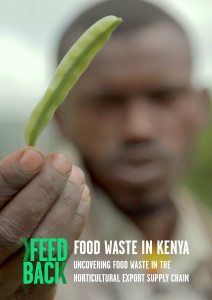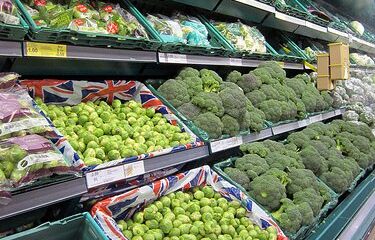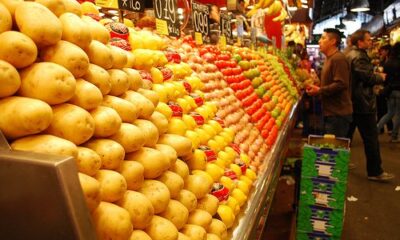

Economy
Kenyan Farmers Suffer Unfair Trading Leading To Huge Levels Of Food Waste
Environmental organisation Feedback has uncovered systemic issues related to imbalances of power and unfair trading practices throughout European agricultural supply chains, resulting in significant impact on food waste levels, farmers livelihoods and food security.
Feedback’s report “Food waste in Kenya: Uncovering food waste in the horticultural export supply chain” published today reveals that Kenyan farmers are being subjected to unfair trading practices such as last minute cancellation of orders and unnecessarily strict cosmetic standards by European retail buyers resulting in massive amounts of food waste.
“Our investigations in Kenya have discovered that on average nearly 50 per cent of produce is being rejected by European retailers before export, despite there being no problem in quality or taste.” said Tristram Stuart, Founder of Feedback and author of Waste, Uncovering the Global Food Scandal (Penguin, 2009).
French beans, Kenya’s most exported vegetable, are subject to a process called ‘topping and tailing’ that results in 30 per cent of the product being wasted.
Unfair trading practices in addition to last minute order changes and cancellations result in huge amounts of food waste and forces farmers into cycles of debt and preventing them from covering basic needs like purchasing food and paying for school fees.
“We are only paid for food that is exported. So, when an order is cancelled at the last minute, or when produce is rejected after landing in the UK, we lose money,” said Maina Kimemia, Chairman, Kenya Association of Fruit & Vegetable Exporters.
“Yet we cannot complain to our clients about these issues nor seek redress, for fear of losing business. These problems originate at the top of the supply chain, and are the result of retailers offloading financial risk on their direct suppliers, including the importers we supply.”
In the UK the Groceries Code Adjudicator has the power to regulate supermarkets’ behaviour towards direct suppliers to stop unfair trading practices. However, indirect suppliers such as farmers and exporters in countries like Kenya are not protected by this law despite being directly affected by supermarket practices such as last minute order cancellations.
Feedback’s Stop Dumping campaign is calling on the Groceries Code Adjudicator to launch an investigation into this type of unfair trading practices and for the UK government to extend the adjudicator’s remit to protect overseas suppliers.
“Feedback wants to see a strengthening of legislation to stop unfair trading practices and a relaxation in supermarket cosmetic specifications, to increase on-farm incomes and food availability where it is needed most,” said Edd Colbert, Campaign and Research Coordinator for Feedback.
“Food waste is a symptom of overproduction. Ultimately, the overproduction of food must be stemmed in order to provide longer-term social, environmental and economic development globally” concluded Colbert.


 Features11 months ago
Features11 months agoEco-Friendly Cryptocurrencies: Sustainable Investment Choices

 Energy11 months ago
Energy11 months agoThe Growing Role of Solar Panels in Ireland’s Energy Future

 Energy10 months ago
Energy10 months agoGrowth of Solar Power in Dublin: A Sustainable Revolution

 Energy10 months ago
Energy10 months agoRenewable Energy Adoption Can Combat Climate Change


























